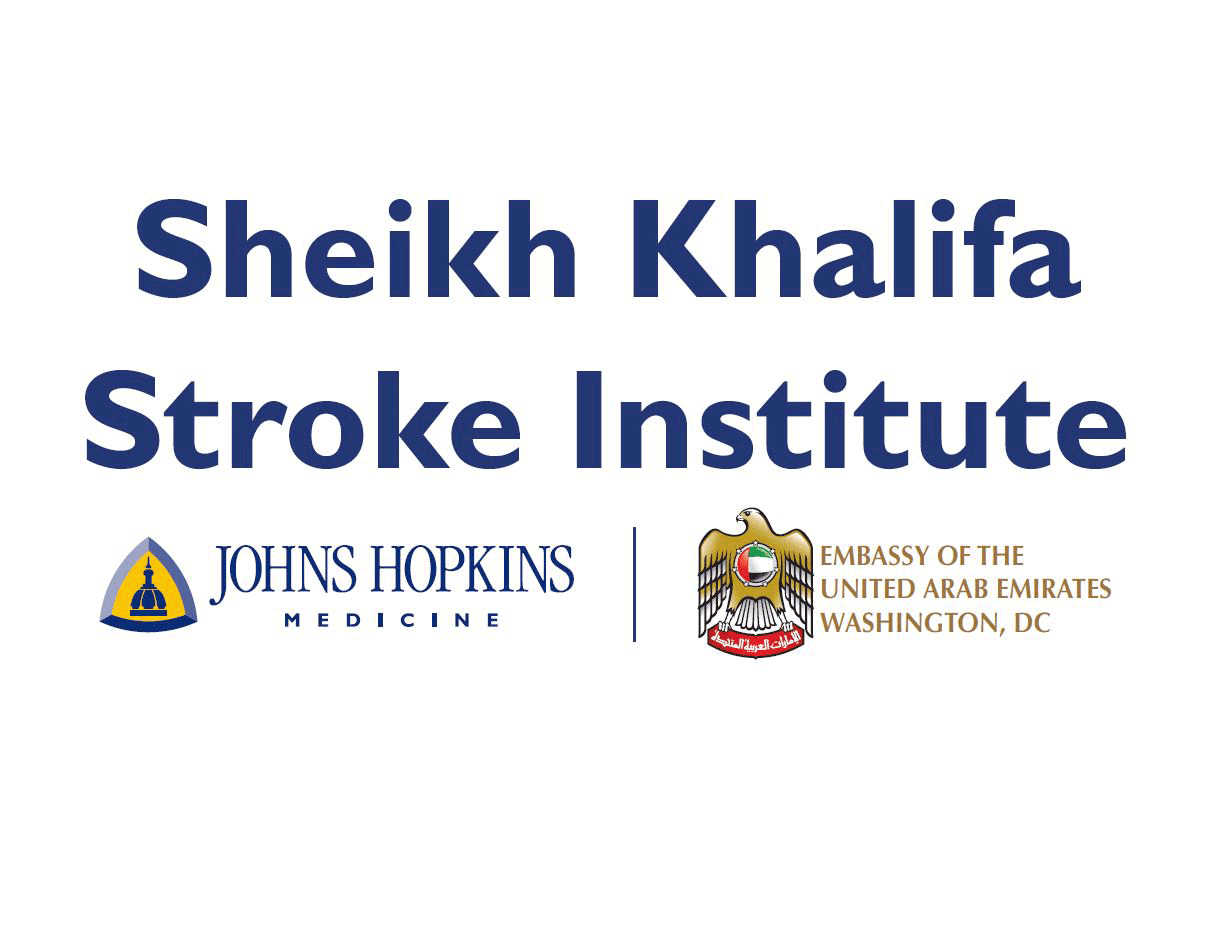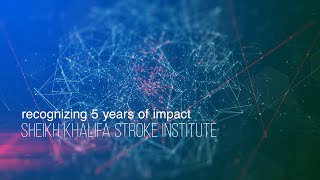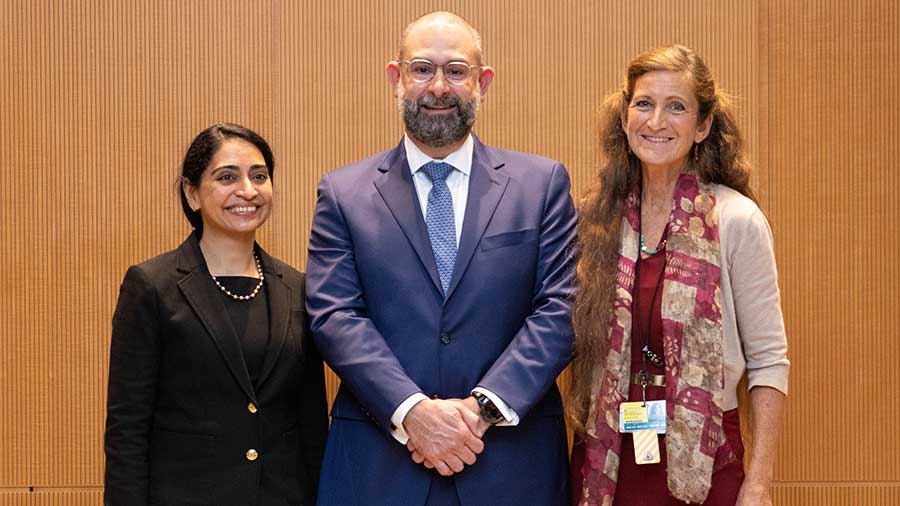Created through a generous philanthropic gift from the United Arab Emirates (UAE), the Sheikh Khalifa Stroke Institute signals a new direction in the understanding of stroke and opens an era of renewed hope for patients, families and communities in the U.S. and UAE.
The institute, operating in Baltimore and the UAE, draws on Johns Hopkins’ vast leadership in stroke diagnosis, treatment and rehabilitation, including biomedical research; innovative technology design; acute medical and surgical treatment; brain repair and neuroplasticity; behavioral recovery; stroke systems of care; prevention and public health.
Learn more about other collaborations between Johns Hopkins and UAE and other locations in the Middle East, as well as our care for international patients through Johns Hopkins Medicine International.

Transforming Stroke Care Worldwide
By working with a unified purpose, Johns Hopkins and UAE scientists and practitioners can more efficiently translate science and technological innovations into treatments, reducing the toll of stroke in the UAE, the U.S. and the world.
Celebrating the Sheikh Khalifa Stroke Institute's 5th Anniversary
This year we are celebrating our fifth anniversary of revolutionizing stroke care across the globe by providing comprehensive healthcare, creating new technologies and improving treatment options through innovative research.
FAST Response to Stroke Symptoms and tPA Saves a Life | Althea’s Story
When Althea’s arm started tingling and her speech became slurred, her son realized she was having a stroke. Thankfully, he got her to the hospital in time to receive a lifesaving medication.



